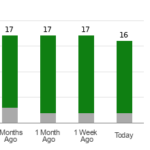A Legal Twist
An unexpected turn in the legal saga involving Binance unfolded last week as a federal appeals court reinstated a class-action lawsuit brought forth by a group of U.S.-based crypto investors against the exchange. This decision marked a significant shift, as it overruled a district judge’s dismissal of the case for jurisdictional reasons and timing constraints.
Significance Amid Uncertainty
Binance’s prior stance of claiming a jurisdiction-less headquarters was dismantled by the appeals court judges, who emphasized the applicability of domestic securities regulations even on exchanges located outside U.S. borders. The broader implications of this ruling extend to ongoing disputes with regulatory bodies such as the U.S. Securities and Exchange Commission, injecting a new layer of complexity into the landscape of cryptocurrency trading.
Decoding the Ruling
The recent court ruling emphasized the importance of the connection between a crypto exchange and U.S. laws, transcending physical borders. The essence of the decision revolved around the location of trade execution, payment origination, and acceptance of terms of service by users – factors pivotal in determining the legal jurisdiction in this case.
The judges, adhering to precedent, underscored that the transactions in question had substantial ties to the United States, thereby warranting the application of domestic securities laws.
“First, Plaintiffs have adequately alleged that their claims involved domestic transactions because they became irrevocable within the United States and are therefore subject to our securities laws,” the judges stated. “Second, Plaintiffs’ federal claims are timely insofar as they relate to transactions that occurred during the year before they filed suit because their federal claims all require a completed transaction and therefore could not have accrued before the transactions were made.”
Additionally, the court noted that the absence of an alternative non-U.S. jurisdiction for the plaintiffs reinforced the legal footing of their case. Arguments presented regarding the application of state laws were deemed credible, heightening the complexity of the legal landscape.
The jurisdictional scope was further solidified by the court’s recognition of the physical location of token orders, which were traced back to Binance’s servers situated in the U.S.
Implications and Beyond
The plaintiffs’ timeliness in filing the lawsuit within the statute of limitations was confirmed by the court, shedding light on the precise timeline surrounding the alleged token transactions. This development prompted the Securities and Exchange Commission to leverage the court ruling in its ongoing legal battle against Binance, fueling a contentious legal showdown between regulatory authorities and the crypto exchange.
As the legal landscape continues to evolve, with regulatory bodies scrutinizing the actions of major players in the cryptocurrency space, the implications of this ruling reverberate across the industry. Whether this legal tussle sets a precedent for future cases remains to be seen, but its impact on the intersection of cryptocurrency and government oversight is unmistakably profound.
Stay tuned as the legal drama unfolds, punctuating the intricate dance between crypto investors, exchanges, and regulatory frameworks.
If you fancy sharing your thoughts or queries on potential future topics, drop me a line at nik@coindesk.com or ping me on Twitter via @nikhileshde.
Engage in the group dialogue on Telegram for more insights and discussions!
Until next time!






